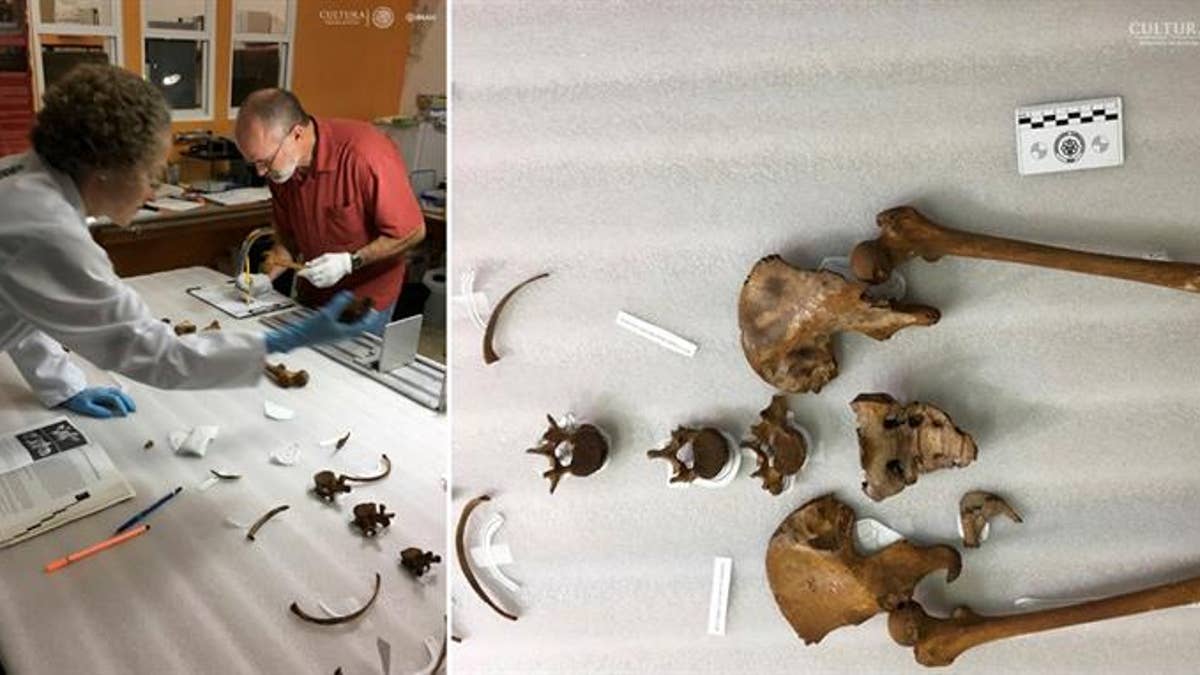
Photographs of Naia's skeleton provided by the National Institute of Anthropology and History. (EFE)
MEXICO CITY – A young mother who died nearly 13,000 years ago in pre-historic Mexico by falling into a well now tells the story of her arduous life through her fossil remains, an archaeologist said.
The remains of the young woman, called Naia (a reference to the Naiads, or aquatic nymphs, of Greek mythology) because she was found in an inundated cave, gained international attention in 2014 as the oldest, most complete and most genetically intact human skeleton ever found in the New World.
STUDY: EARLY AMERICAS GIRL 'NAIA' MAY HAVE BEEN YOUNG MOTHER
After years of study by scientists from Mexico, the United States and Canada, it was determined that Naia – discovered in 2007 at a site known as Hoyo Negro in Tulum, a municipality in the southeastern state of Quintana Roo – was a 15-year-old or 16-year-old adolescent who lived between 12,000 and 13,000 years ago and had just given birth, archaeoloist Pilar Luna Erreguerena said.
But more significantly, mitochondrial DNA analysis shows her to be the genetic link between Paleoamericans and the modern-day indigeneous peoples of the Americas.
MYSTERIOUS TINY MUMMY STUNS EXPERTS
The new analysis reveals that Naia was nearly 60 inches tall and weighed 111 pounds, while a study of her teeth and long bones reveals that she frequently experienced extreme hunger.
Luna, head of the National Institute of Anthropology and History's Division of Underwater Archaeology and director of the Hoyo Negro project, told EFE that Naia had several so-called Harris lines that indicate she suffered from periods of famine.
STOLEN MUMMY HAND MAKES ITS WAY HOME
"She suffered from food scarcity on several occasions throughout her long or short life, however you want to see it. Because although for us she was a young girl for these times, Naia was really at the midpoint of her life," the archaeologist said.
These findings indicate that the lives of the ancient settlers of the Americas, or at least some of the groups that arrived from Asia over the now-submerged Bering land bridge, were far from ideal despite that region's abundant natural resources.
"It was a very tough life," Luna said.
